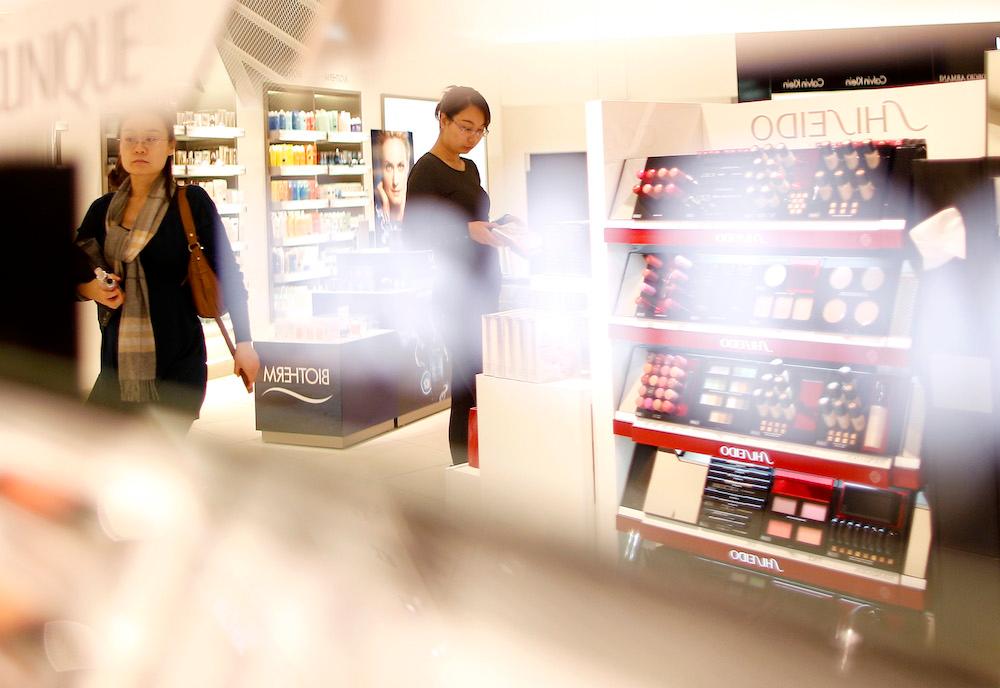Study: German ‘pink tax’ makes everyday goods more expensive for women
Women look at cosmetic products in a Duty Free store at the Fraport airport in Frankfurt November 14, 2012.
From pink razor blades to salon haircuts, women regularly pay more for items and services that are nearly identical to those for men but marketed differently, a German watchdog said Tuesday.
In the country's largest such study to date, the federal anti-discrimination agency (ADS) singled out hairdressers and dry cleaners as the worst offenders, though it found that overall, the price gap for gendered products was relatively small.
"If a person is charged more purely based on their gender, then in principle this violates the law against discrimination," said Christine Lueders, the head of Germany's federal anti-discrimination agency (ADS).
Her agency compared the prices of nearly 1,700 products that targeted a specific gender — often by using the colors pink and blue — but were otherwise similar.
Among the examples of the so-called "pink tax" was a pink pack of four razor blade refills sold by the discount supermarket chain Aldi for $5.30, while the blue "for men" version cost $4.60.
On the Toys 'R' Us website, a Disney space hopper branded with the princesses from "Frozen" carried a price tag of 8.99 euros, compared to 7.98 euros for the "Cars" version.
But overall, the gender markup was encountered in less than four percent of products, the ADS said.
Service providers fared worse, with women "paying significantly more than men" to have their clothes dry-cleaned or their hair done.
Almost nine out of 10 salons priced their services according to gender, it found.
A woman with short hair paid on average 12.50 euros more for a cut than a man, even if the same amount of time and effort went into it.
Dry-cleaning a blouse cost on average 1.80 euros more than the cost for cleaning a men's shirt.
"We recommend in particular that dry-cleaners and hairdressers price their options according to the specific type of service provided and not by gender," Lueders said.
She pointed to "the good example" set by Austria, where hairdressers have already switched to gender-neutral pricing.
The ADS called for closer monitoring of gender price gaps in future and said consumers should be made more aware of the disparities.
The "pink tax" study is likely to leave women seeing red in a country where they already earn on average about a fifth less than their male colleagues, above the EU average of around 16 percent less.
The adjusted pay gap, which compares wages for people with the same qualifications doing the same work, stands at roughly six percent, according to official figures.
